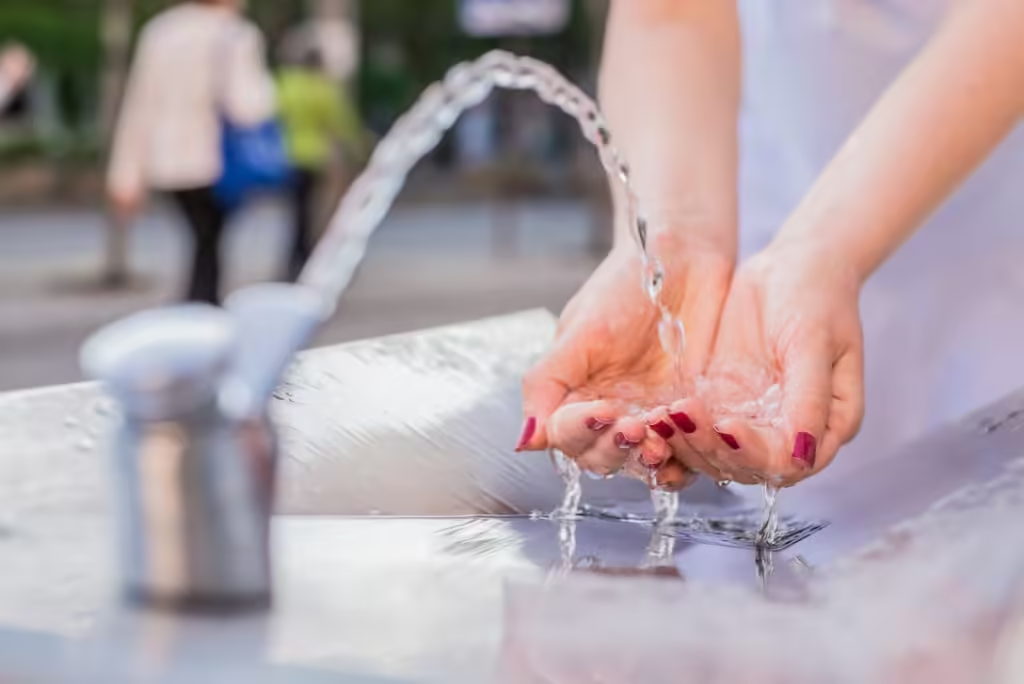Understanding Water Hardness
Water hardness measures specific minerals, predominantly calcium and magnesium, in your water supply. These minerals are absorbed naturally as water travels through soil and rocks. Studies reveal that more than 85% of households in the United States are affected by hard water. Understanding this is crucial, mainly because hard water interacts with soaps, causing them to form a precipitate, which reduces cleaning efficacy. Hard water leaves mineral residues known as limescale on cookware and plumbing fixtures and contributes to inefficiencies in water heating systems by insulating heating elements with scale deposits. Thus, integrating solutions like a water softener installation New Braunfels becomes essential for comfort and appliances’ longevity and efficiency.
Effects of Hard Water on Daily Life
Hard water has a pervasive influence on everyday living, with effects manifesting in various household activities and maintenance processes. Routine tasks such as washing clothes and bathing are impacted as the soap’s ability to lather dramatically diminishes. This often results in more detergent than necessary, which can soften your skin and cause fabrics to wear quickly over time. In addition, home appliances like water heaters, dishwashers, and washing machines suffer entirely from wear and tear. Prolonged use of hard water results in scale buildup, compromising functionality, reducing efficiency, and accelerating the equipment’s aging process. Considering how all these factors incrementally increase the cost of household maintenance, the role of water softening in preventing these issues cannot be overstated.
Benefits of Water Softening
Implementing a water softening system provides numerous benefits that enhance household conveniences and lead to significant economic advantages. According to a report by the NSF, homes with softened water enjoy savings due to the increased efficiency of their water heaters and reduced wear and tear on appliances. Softened water prolongs the life and functionality of dishwashers and washing machines by preventing scale development and reducing the need for more frequent repairs and replacements. On a personal level, it also improves skin and hair health by allowing soaps and shampoos to lather effectively, making cleaning more efficient and improving the overall bathing experience. In short, water softening is not just about mitigating inconvenience; it’s an investment in home maintenance and personal well-being.
The Science Behind Water Softening
An ion exchange procedure that replaces calcium and magnesium ions with sodium or potassium ions is the primary method of softening water. This transformation reduces mineral content and, consequently, water hardness. In simplified terms, ion-exchange water softeners contain resin beads charged with sodium ions. As hard water flows through the beads, an exchange of ions occurs, leaving softened water to flow out. This scientific process is a proven method for addressing water hardness and ensuring the removal of minerals that cause scale buildup and poor soap performance. Understanding how these systems operate can aid consumers in choosing solutions that align with their specific needs and household conditions.
Choosing the Right Water Softening System
The selection of a water-softening system hinges on several critical considerations tailored to individual household requirements. These considerations include the household’s size and water consumption habits, the severity of water hardness, and budget constraints. Smaller dwellings with moderate water usage might benefit from compact, under-sink units, while larger households could require full-home systems to meet their needs. It is also worthwhile to examine features such as efficiency ratings, regeneration cycles, and the need for regular maintenance. Systems offering user-friendly interfaces and easier maintenance are generally preferred, as they reduce the long-term operational burden on householders.
Installation and Maintenance
While some water softening units are promoted as DIY-friendly, installing more complex models often benefits from professional expertise. This is particularly true in cases where integration with existing plumbing systems is necessary. Regular maintenance, including periodic resin bed cleaning and timely replacement, motorola stock rom t3tf33.66-56 ensures the continuous efficiency and longevity of the water-softening system. Routine checks on salt levels (for salt-based systems) and the smooth functioning of control valves are part of the necessary inspection tasks to safeguard optimal system performance over years of use.
Alternatives to Traditional Systems
Alongside traditional ion exchange systems, innovative technologies such as magnetic and electronic descalers have emerged as alternatives. These devices work by altering the structure of minerals in water through electromagnetic processes, reducing their propensity to form scale. While often marketed as ecological solutions due to their zero-salt design, the effectiveness of these methods can vary based on the specifics of water hardness and existing plumbing configurations. Therefore, consumers should weigh these options based on personal experience and evidence, understanding that outcomes may differ from one household to another.
The Future of Water-Softening Technology
The future of water softening technology is promising, as ongoing research propels the development of more sustainable and innovative solutions. The concept of salt-free water softening, using catalytic media that doesn’t involve traditional ion exchange, is gaining traction. Such technology provides environmentally friendly alternatives with lesser maintenance demands. As public awareness around conserving resources and minimizing ecological impact grows, these advancements represent a step towards balancing environmental responsibilities with the need for effective water treatment.
Conclusion
Water softening offers practical benefits that enhance daily living, from reducing appliance maintenance to improving skin and hair quality. Water softeners create a more comfortable home environment by minimizing scale buildup and boosting efficiency. Purchasing a water softener eventually results in lower long-term expenses and a higher standard of living.

